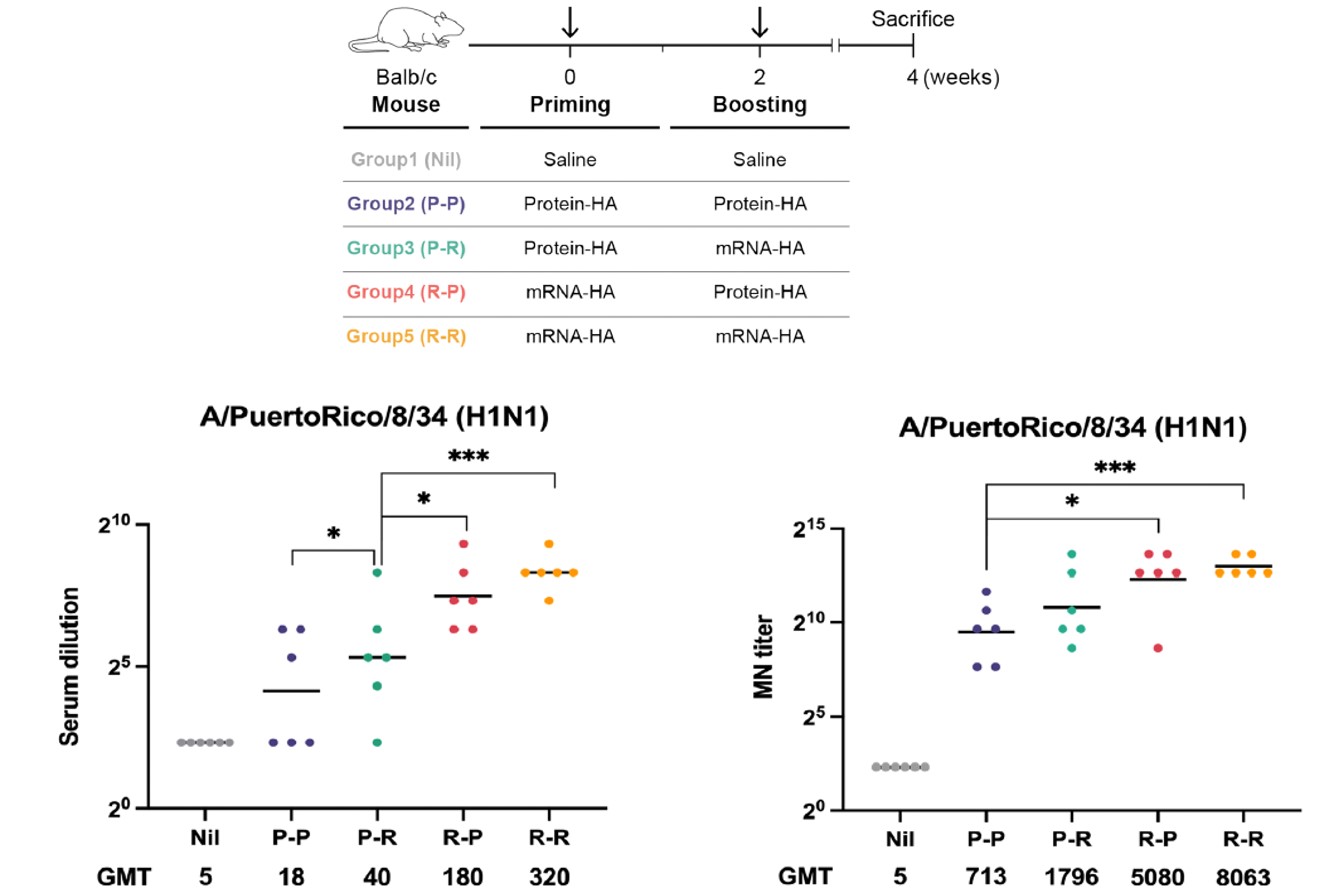-
Team Led by Professor Nam Jaehwan, “Heterologous and homologous vaccination showed similar immunization efficacy”Author : 관리자Date : 2023.06.12Hit : 415
-
- When primed with mRNA vaccine, boosting with protein-based vaccine will lead to sufficient immune responses
- The research results published on npj Vaccines (IF=9.399), the best international journal in the field of vaccines

*Photo description: When the influenza HA protein vaccine (protein-HA) and the influenza HA mRNA vaccine (mRNA-HA) were given differently as primary immunization (priming) and secondary immunization (boosting), the results demonstrated that the mRNA-HA priming/protein-HA boosting group showed similar immune responses (HI titer/MN titer) to those induced by the mRNA-HA priming/mRNA-HA boosting group.
The experiment conducted by Professor Nam Jaehwan of the Department of Biomedical Sciences at the Catholic University of Korea (President Won Jongchul) demonstrated that the immune responses are different depending on the order of vaccination of an mRNA vaccine and a protein vaccine, but there is no significant difference in the immune responses between heterologous vaccination and homologous mRNA vaccination.
So far, various vaccines platforms related to coronavirus have been developed, including viral vector vaccines (Oxford-AstraZeneca, Janssen), protein subunit vaccines (Novavax, SK Bioscience), inactivated vaccines (Sinopharm, Sinovac), and mRNA vaccines (Moderna, Pfizer-BioNTech). Due to the COVID-19 pandemic, there were cases of heterologous vaccination with different types of vaccines for the 1st, 2nd, and 3rd vaccinations depending on the order of vaccine development and introduction, leading to many concerns about the effectiveness and side effects of heterologous vaccination.
A research team led by Professor Nam Jaehwan of the Catholic University of Korea, who has experience in developing mRNA vaccines, tested the difference in immune responses depending on the order of vaccination of mRNA and protein-based vaccines. As a result of the study, the group vaccinated with an mRNA vaccine first (priming) and then a protein vaccine second (boosting) (mRNA-HA + Protein-HA, R-P) showed excellent immunity against viruses with higher antibody titers and T-cell activation compared to the group vaccinated with a protein vaccine first and an mRNA vaccine second (Protein-HA + mRNA-HA, P-R).
It was also revealed that there is no significant difference in the immunity response between the R-P group and the homologous mRNA vaccination. It was found that a person who was vaccinated with a mRNA vaccine first can expect sufficient immune responses from getting a protein vaccine from the second vaccination because the T-cell responses were sufficiently induced with the first vaccination.
Based on this study, the research team led by Professor Nam said, “Those who experienced side effects from the mRNA vaccination will see no difference in immunization compared to those who received a homologous mRNA vaccination even if they get vaccinated with another type of vaccine with fewer side effects.”
Professors Nam Jaehwan and Kwak Woori's team from CUK, Professor Hong Soohee's team from Ewha Women's University, Doctors Geum Gyochang and Bang Eunkyung's team from Korea Institute of Science and Technology (KIST) participated in this study. The study was funded by the core technology development project of the new variant infectious disease response platform of the Ministry of Science and ICT. The results of this research were published in npj Vaccines (IF=9.399), the most reputed journal in the field of vaccines and the sister journal of Nature.
-
Attachment File

